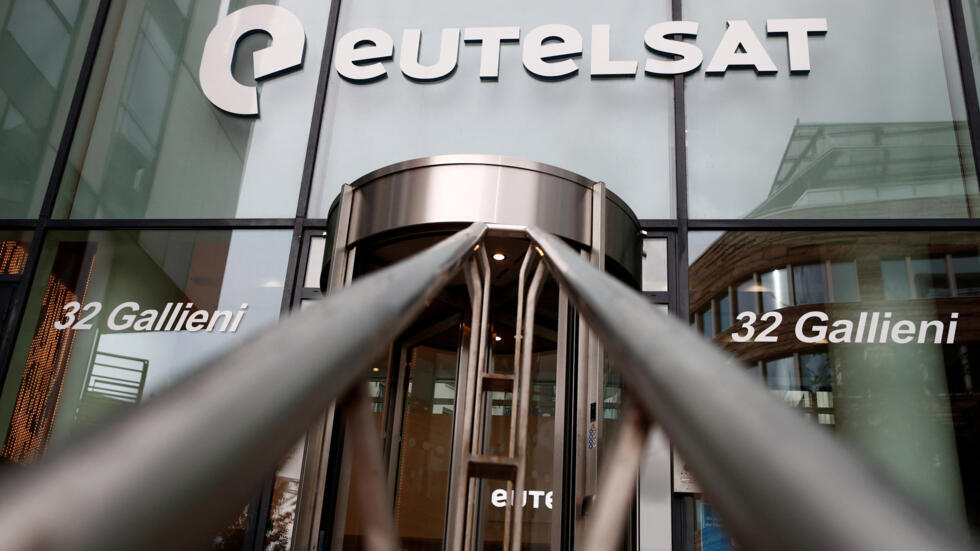French satellite operator Eutelsat announces merger with UK's OneWeb
French and British satellite operators Eutelsat and OneWeb announced Tuesday plans to merge and create a "global champion" in broadband internet, rivalling US giants such as Elon Musk's Starlink.
Issued on: Modified:

Eutelsat and OneWeb said in a joint statement that they have signed a memorandum of understanding to join forces to become "a leading global player in connectivity... in an all-share transaction."
Each would hold a 50-percent stake in the combined entity, the statements said.
In what they said would be "a game-changer in the industry," Eutelsat would combine its 36-strong fleet of geostationary Earth orbit (GEO) satellites with OneWeb's constellation of 648 low Earth orbit satellites (LEO), of which 428 are currently in orbit.
"This ground-breaking combination will create a powerful global player with the financial strength and technical expertise to accelerate both OneWeb's commercial deployment, and Eutelsat's pivot to connectivity," said Eutelsat chief executive, Eva Berneke.
Double-digit growth
"The combined entity will be geared towards profitable growth," with a potential for "double-digit" increase in both sales and profit "over the medium to long term," both companies said.
"This combination accelerates our mission to deliver connectivity that will change lives at scale and create a fast growing, well-funded company which will continue to create significant value for our shareholders," said OneWeb CEO, Neil Masterson.
Satellite broadband promises to bring coverage to the most remote areas of the planet by doing away with the need for antennas and other infrastructure.
Eutelsat said it would be "uniquely positioned" to exploit a market that it expected to be worth $16 billion by 2030.
The deal would likely fulfill French President Emmanuel Macron's wish when he spoke to European ministers in February, insisting that it was a “matter of sovereignty” to create a satellite offering that could rival entrepreneur Elon Musk.
French President Emmanuel Macron said it was a “matter of sovereignty” to create a satellite offering that could rival Elon Musk’s SpaceX https://t.co/Qz4sE9Roov
— Bloomberg (@business) July 25, 2022
European firms face stiff competition
Apart from Musk's Starlink, which has a fleet of about 2,500 satellites launched over the last few years by Musk's Space Exploration Technologies Corp (SpaceX), Amazon founder Jeff Bezos has pledged billions to develop his company's satellite structure.
On 22 April, Amazon announced "Project Kuiper," which is designed to create a "satellite constellation" consisting of 3,236 satellites, to be launced by commercial carriers including Arianespace, Blue Origin, and United Launch Alliance.
Public institutions are also looking to get in on the act.
The European Union wants to deploy roughly 250 satellites by 2024 and China has a plan to launch 13,000 of its own.
The British government owns a stake in OneWeb.
Eutelsat already holds 23 percent of OneWeb's shares.

Politically sensitive
The deal will strengthen both companies in the race to build a constellation of low-orbit satellites.
But Reuters reports that a tie-up could be "politically sensitive," as it would bring together Indian billionaire Sunil Bharti Mittal, along with France, China and Britain as shareholders of the combined group.
"From an anti-trust point of view, this deal is likely to be scrutinised heavily and will also likely need political consensus from both the UK and EU at a time when the UK is choosing a new Prime Minister," Credit Suisse said in a note.
Demand for satellite launches is expected to accelerate after recent sanctions sidelined the Russian space launch industry, and giant satellite constellations could offer a new channel to beam broadband Internet from space.
(Agencies)
Daily newsletterReceive essential international news every morning
Subscribe